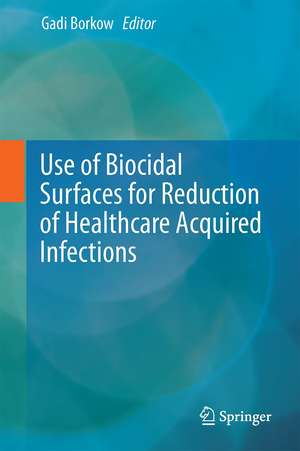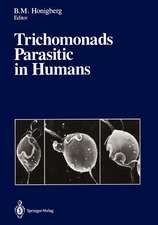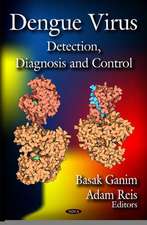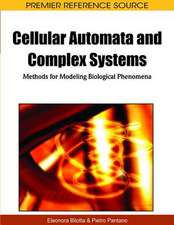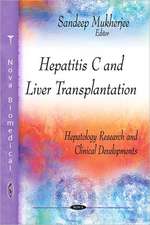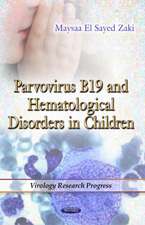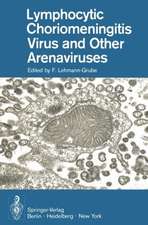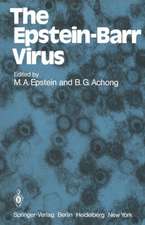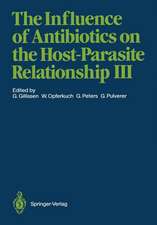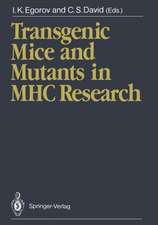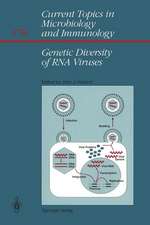Use of Biocidal Surfaces for Reduction of Healthcare Acquired Infections
Editat de Gadi Borkowen Limba Engleză Hardback – 18 aug 2014
This book reviews the increasing evidence that contaminated non-intrusive soft and hard surfaces located in the clinical surroundings are a source of nosocomial pathogens and focuses on the utility of copper containing materials in reducing bioburden and fighting hospital acquired infections. It also reviews other biocidal surface alternatives and the economics of using biocidal surfaces in a hospital environment. Finally, it discusses the pros and cons of existent disinfection modalities other than biocidal surfaces.
| Toate formatele și edițiile | Preț | Express |
|---|---|---|
| Paperback (1) | 711.72 lei 6-8 săpt. | |
| Springer International Publishing – 17 sep 2016 | 711.72 lei 6-8 săpt. | |
| Hardback (1) | 722.69 lei 6-8 săpt. | |
| Springer International Publishing – 18 aug 2014 | 722.69 lei 6-8 săpt. |
Preț: 722.69 lei
Preț vechi: 760.73 lei
-5% Nou
Puncte Express: 1084
Preț estimativ în valută:
138.28€ • 144.77$ • 114.42£
138.28€ • 144.77$ • 114.42£
Carte tipărită la comandă
Livrare economică 05-19 aprilie
Preluare comenzi: 021 569.72.76
Specificații
ISBN-13: 9783319080567
ISBN-10: 3319080563
Pagini: 215
Ilustrații: V, 215 p. 45 illus., 22 illus. in color.
Dimensiuni: 155 x 235 x 15 mm
Greutate: 0.59 kg
Ediția:2014
Editura: Springer International Publishing
Colecția Springer
Locul publicării:Cham, Switzerland
ISBN-10: 3319080563
Pagini: 215
Ilustrații: V, 215 p. 45 illus., 22 illus. in color.
Dimensiuni: 155 x 235 x 15 mm
Greutate: 0.59 kg
Ediția:2014
Editura: Springer International Publishing
Colecția Springer
Locul publicării:Cham, Switzerland
Public țintă
ResearchCuprins
Survival of microorganisms on inanimate surfaces.- The role of contaminated surfaces in the transmission of nosocomial pathogens.- Role of the Microbial Burden in the Acquisition and Control of Healthcare Associated Infections: The Utility of Solid Copper Surfaces.- Biocidal hard and soft surfaces containing copper oxide particles for the reduction of healthcare-acquired pathogens.- Biocidal mechanisms of metallic copper surfaces.- An overview of the options for antimicrobial hard surfaces in hospitals.- Economics of using biocidal surfaces.- Alternative room disinfection modalities – pros and cons.
Recenzii
From the book reviews:
“This book focuses primarily on a relatively novel approach to reducing HAIs through the use of biocidal surfaces in healthcare facilities. … This book may be of interest to infection preventionists, hospital epidemiologists, quality management personnel, or any other members of the healthcare team, including hospital administrators, whose decisions may impact the rate of HAIs.” (Farrin A. Manian, Doody’s Book Reviews, February, 2015)
“This book focuses primarily on a relatively novel approach to reducing HAIs through the use of biocidal surfaces in healthcare facilities. … This book may be of interest to infection preventionists, hospital epidemiologists, quality management personnel, or any other members of the healthcare team, including hospital administrators, whose decisions may impact the rate of HAIs.” (Farrin A. Manian, Doody’s Book Reviews, February, 2015)
Textul de pe ultima copertă
The notion that contaminated environments in hospital settings significantly contribute to the risk of an individual acquiring an infection while hospitalized is continuously gaining recognition by the medical community. There is a clear correlation between the environmental bioburden present in a clinical setting and the risk of patients acquiring an infection. Thus using self-disinfecting surfaces can be a very important adjunct in the fight against nosocomial pathogens.
This book reviews the increasing evidence that contaminated non-intrusive soft and hard surfaces located in the clinical surroundings are a source of nosocomial pathogens and focuses on the utility of copper containing materials in reducing bioburden and fighting hospital acquired infections. It also reviews other biocidal surface alternatives and the economics of using biocidal surfaces in a hospital environment. Finally, it discusses the pros and cons of existent disinfection modalities other than biocidal surfaces.
This book reviews the increasing evidence that contaminated non-intrusive soft and hard surfaces located in the clinical surroundings are a source of nosocomial pathogens and focuses on the utility of copper containing materials in reducing bioburden and fighting hospital acquired infections. It also reviews other biocidal surface alternatives and the economics of using biocidal surfaces in a hospital environment. Finally, it discusses the pros and cons of existent disinfection modalities other than biocidal surfaces.
Caracteristici
A “must read” by all infection control officers determined to protect their patients from infections The Book reviews and discusses “out of the box" measures to fight Healthcare Acquired Infections (HAI) The Book describes how using self-sterilizing surfaces can fight HAI, including those caused by antibiotic resistant pathogens
